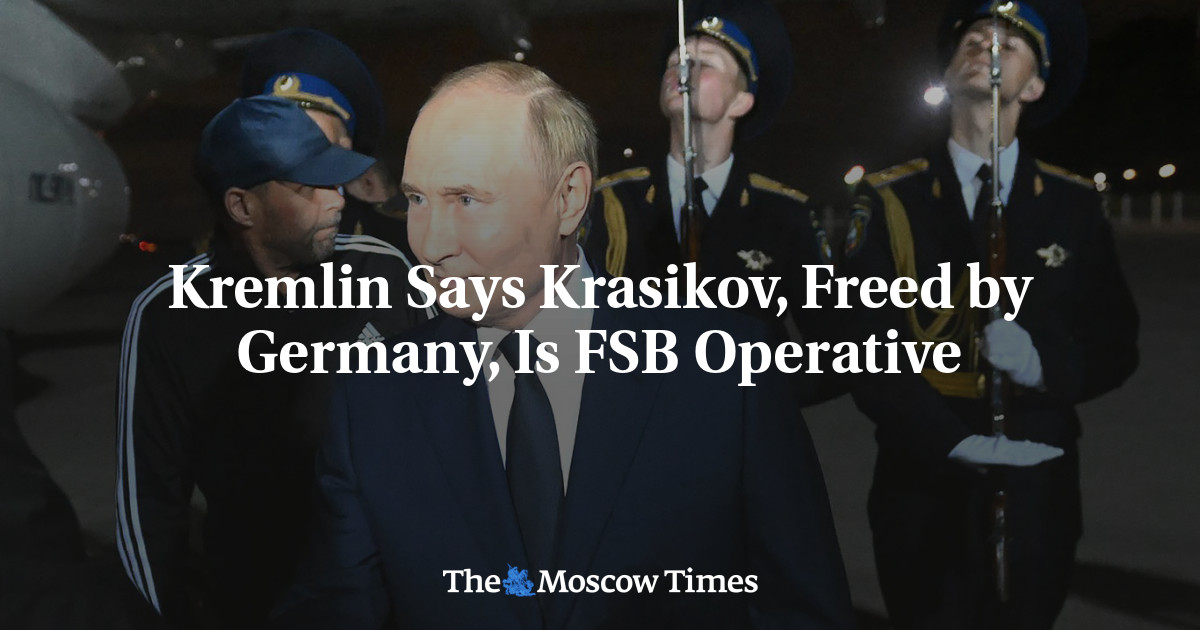
The Kremlin on Friday confirmed that Vadim Krasikov, freed by Germany in Thursday’s prisoner swap deal with the West, is an operative with Russia’s FSB security service.
Moscow also said that the children of an undercover spy couple released by Slovenia did not even know they were Russian until they boarded the plane back to Moscow.
“Krasikov is an FSB employee,” Kremlin spokesman Dmitry Peskov told reporters on Friday, adding that he served in the agency’s elite and secretive “Alpha” unit.
Peskov also said that Krasikov “served with some of the people working in the president’s security detail.”
Krasikov was serving a life sentence in Germany for the murder of a Chechen rebel commander in a Berlin park in 2019 — an assassination that German judges said was ordered by the Russian state.
An investigation by Bellingcat had previously found Krasikov had links to Russia’s FSB, though Friday’s admission was the first time Moscow has publicly confirmed he was an FSB agent.
Putin on Thursday had hailed the return of the Russian prisoners — some of whom he said had “a direct connection” to the military — telling them: “The Motherland never forgot about you.”
Peskov confirmed that a Russian couple released from Slovenia were also spies.
Artem Dultsev and Anna Dultseva, whose two children were also sent to Russia in the deal, had been posing as an Argentine couple that ran an IT business and art gallery in Ljubljana.
“The children of the illegals who arrived yesterday only found out they were Russian on the plane from Ankara. They do not speak Russian,” Peskov said.
Putin had greeted the children with “buenas noches” — Spanish for “good evening” — on the tarmac in Moscow.
“Illegals” is a term used to refer to Russian undercover spies who live in foreign countries for years, or even decades, under fake identities, gathering intelligence to send back to Moscow.
Ten Russians — eight prisoners and the two children — were freed in the historic prisoner exchange that saw Moscow release U.S. citizens Evan Gershkovich, Paul Whelan and Alsu Kurmasheva, along with a host of Russian dissidents and activists.